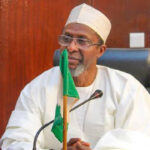The federal government’s plan to disburse N8,000 monthly to 12 million “poor households” for six months as palliative for the removal of fuel subsidy indicates clearly that the nation is yet to set itself on the path of poverty eradication and prosperity for all.
According to the National Bureau of Statistics, the average Nigerian household has five members which means each member will receive N1,600 monthly! This is certainly not evidence of a clearly thought-out, well-reasoned policy to eradicate poverty.
The word “palliative” derives from medical practice, and means a form of care which relieves symptoms, without dealing with the underlying problem. The use of palliatives is always tacit acceptance that there is no cure available. The three main forms of “successful” palliatives are symptom management, emotional support and spiritual care, and the sum of N8,000 doesn’t address any of these properly. It is a superficially conceptualised plan which will not do any good economically.
It simply represents another subsidy in disguise, meaning in effect that rather than invest in wealth creation, government has chosen to subsidise poverty! It is illogical to remove a fuel subsidy which positively affected everybody’s life, simply to replace it with another which will positively affect nobody!
Nigerian Labour leaders correctly assert that the minimum wage of N30,000 is grossly inadequate and doesn’t address the country’s escalating cost of living. The N8,000 palliative cannot buy a carton of noodles let alone a bag of rice, nor fill a 12kg gas cylinder, and certainly isn’t enough to eat three square meals a day for a week let alone a month!
The Centre for Human Rights and Accountability Network (CHRAN) queries the method used to determine the benefitting households and wonders what the sum of N267 per day in a household will do to solve anybody’s problems? Continuing with cash handouts is simply repeating the mistakes of the previous administration which claimed to have given away untraceable billions yet made no positive impact on the economy, the environment or even on poverty! Reports released by the National Bureau of Statistics confirmed that despite all previous poverty eradication interventionist programmes, Nigerians have only ended up becoming poorer!
The opposition Peoples Democratic Party (PDP) alleged that a special investigation into Tradermoni reveals N20 billion was “wasted” as a result of corruption, kickbacks, and fraud, concluding that the scheme was detrimental to the nation.
In further detriment to the nation, government has recently obtained approval to borrow yet another $800 million in order to give away opaquely, with no well-articulated plans as to how to repay, other than to increase taxation and sink citizens further into poverty! In terms of eradicating poverty, the cash-handout plan is an exercise in futility and indicates a serious deficiency of ability to think creatively “outside the box”.
Undoubtedly, the $800 million loan which includes additional monies to maintain an unjustifiably expensive National Assembly (NASS) should have been channelled to more productive purposes which would have been structured to fund the loan repayment. Attempts by the Senate to differentiate between the sums of N500 billion and $800 million are unimpressive. It’s all government money and it’s simply unconscionable for political office holders to inflict austerity measures against the public while they fritter public funds in pursuance of ostentatious lifestyles.
The Socio-Economic Rights Accountability Project (SERAP) has correctly described additional money for NASS members as a breach of public trust, pointing out that the approved N110 billion could have been used to successfully address far more important problems such as the number of out-of-school children. In truth, the allocation of N70 billion to “support the working conditions of new members” and the sum of N40 billion reserved for importing SUVs and bulletproof vehicles for NASS is an outrage. It has correctly been described as a vexatious show of recklessness, shamelessness, irresponsibility and irrationality. It’s a slap in the face for long-suffering Nigerians and clear indication that those charged with representing the interests of their constituents by enacting laws for increased public welfare, are mainly concerned with representing their personal interests and satisfying their personal greed.
In Nigeria, winning election is similar to winning the lottery in terms of gambling to make fast money legally. However, by increasing allowances for themselves, without the approval of the Revenue Mobilisation Allocation and Fiscal Commission (RMAFC), NASS has deliberately acted contemptuously and illegally. According to human rights lawyer Femi Falana, it is in clear violation of Section 70 of the Constitution which states that “A member of the Senate or the House of Representatives shall receive such salary and other allowances as Revenue Mobilisation Allocation and Fiscal Commission may determine”.
The Human Rights Writers Association of Nigeria (HURIWA) lamented that it is inconceivable for politicians to be so crudely heartless when over half of the population is multidimensionally poor and evidence of deprivations in sanitation, healthcare, food, insecurity and housing abounds everywhere. It is difficult to disagree with their conclusion that it would amount to a mindless abuse of power and negation of the constitution if the loan was disbursed as planned.
Since 1999, every government has urged Nigerians to exercise patience, support their programmes, and bear their suffering because their lives will improve tomorrow. The various tomorrows have come and gone just like the governments, and their lives are now worse than ever! The nation urgently requires well-considered solutions to poverty and deprivation, not simple opaque and ineffective palliatives!

 Join Daily Trust WhatsApp Community For Quick Access To News and Happenings Around You.
Join Daily Trust WhatsApp Community For Quick Access To News and Happenings Around You.


